Bukhara is the cotton bowl of Central Asia, and we passed hundreds of small cotton farms in the bus. The plants are around 60cm tall, and not as prolific as in Australia. They are irrigated from above by plastic hosing strung through the tops of the bushes.
Not sure about the planting, but all picking is done by hand. There would be 50 or so labourers in every field, and it seems that there was a percentage of balls left on the plant. Maybe the hand picking is less efficient, or maybe they have bloomed after the pick.
In finished paddocks, there were labourers with scythes cutting the plant to a couple of inches (though we saw a couple of tractors), and others gathering the cut bushes. It seemed that cattle were then grazed in the field, which would give food to the cattle and fertiliser to the field.
The cotton harvest was principally for the Soviet factories back in the day, but is now shipped all over the nearby world, and is a principal export of the country.
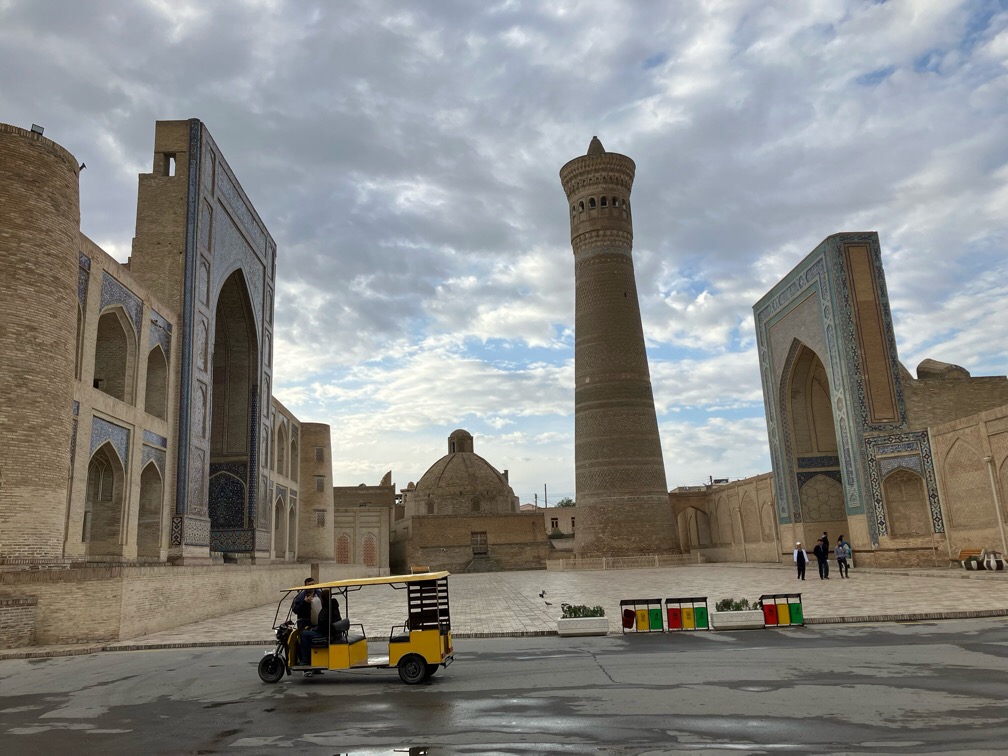
The history of Bukhara is tied to the Emir. There were 43 of them over the years, and ‘emir’ was accorded the same status internationally as king. Palaces, armies, citadels and visits by honoured rulers, presidents and emissaries. The whole nine yards.
The Emirate of Bukhara lasted until the early 20th century when the Emir basically had to choose which colonial empire he wanted to beholden to – the British empire on his southern border in India, or the Russian empire on his northern border. He chose Russia, but within 2 years Russia had a revolution, and the communists took control, wiped out most buildings, shut the mosques, banned religion, educated the women, and changed the dress. The old Emir died, and the emirate was no more.
Under Soviet rule, the Soviets tried hard to gather the various ethnic groups into administrative regions, but the problem was that ethnic groups were interspersed with each other in the region and the mountains, and regardless of where they drew the boundaries there were always some pockets of ethnic groups in villages that didn’t obey lines on maps. Depending on who you ask, the Soviets did an OK job, or a terrible job, and the borders were changed several times in an effort to sort it out.
Following the collapse of the Soviet Union in 1991, the administrative borders became country borders, and the anomalies have become flashpoints ever since. Even today there are pockets of one country completely inside another, and border wars are regular.
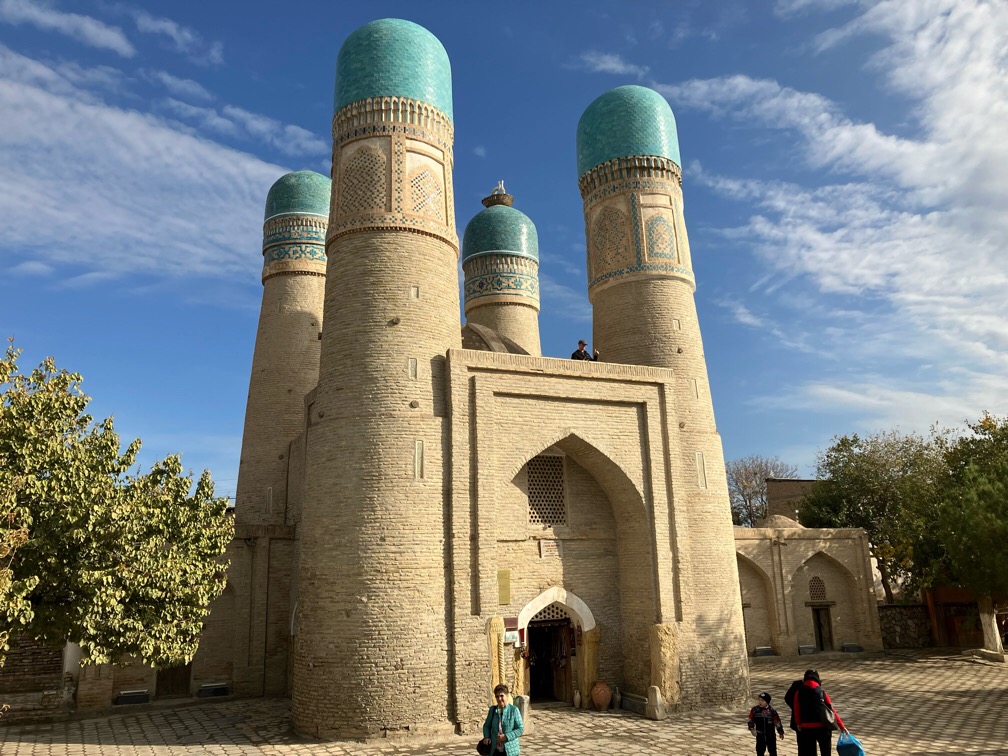
Today was our day to explore the ancient Emirate of Bokhara on foot. We started with the Chor-minor, a revelation for its time. One of the Emirs had four daughters, and wanted them to be educated, but the Sharia law forbade them to be educated in the madrasa, so he had a special women’s madrasa built with four towers, one for each daughter, and so began the education of women in the emirate.
We saw the Nodir Devonbegi madrasa for the boys, and the ceramics museum now housed in the Khanaka, which was a cloister of the Suffists who predated Islam in the country.
Next up was the mausoleum of Somoni who brought Islam to the country and superseded the Suffists, the third of the big 3 sites in the city.
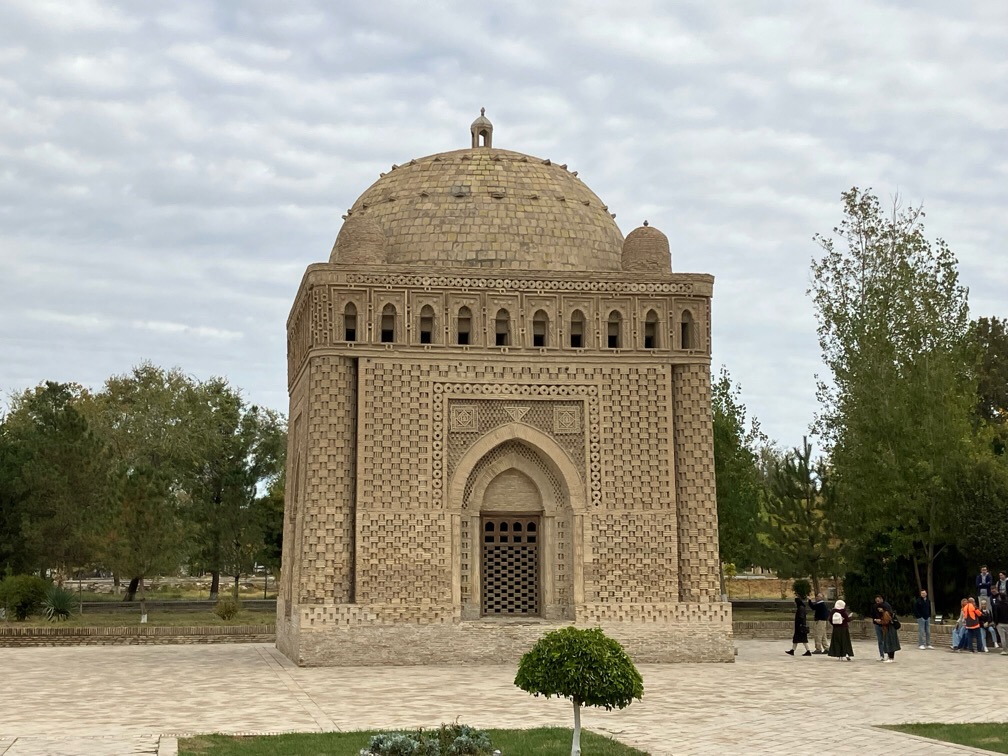
The museum of history of the Bukhara water supply was next. Sounds like a pretty dry topic, but it wasn’t, then on to the very impressive Boloi Hovuz cathedral mosque from the 18th century.
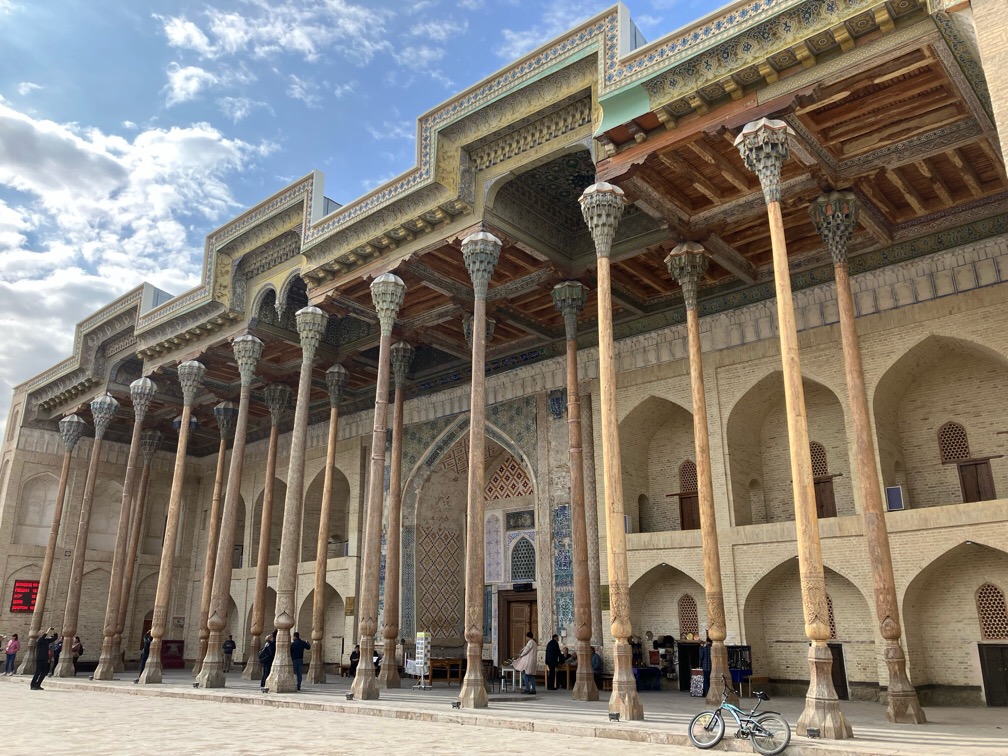
We finished the tour at the Emir’s huge winter fortress/palace, then had lunch next to the bazaar, listening to traditional music by that local Bukharan artist George Michael.
There are lots of groups of English language secondary students roaming the streets trying to find practice victims, and we spend a very happy half hour with one group answering questions, and asking lots of our own in return.
After a couple of hours rest, the first in almost two weeks, it was off to dinner at the local cultural folklore song and dance show. Not really my cup of tea, but then again we didn’t have to sing ’Sweet Caroline’ once.
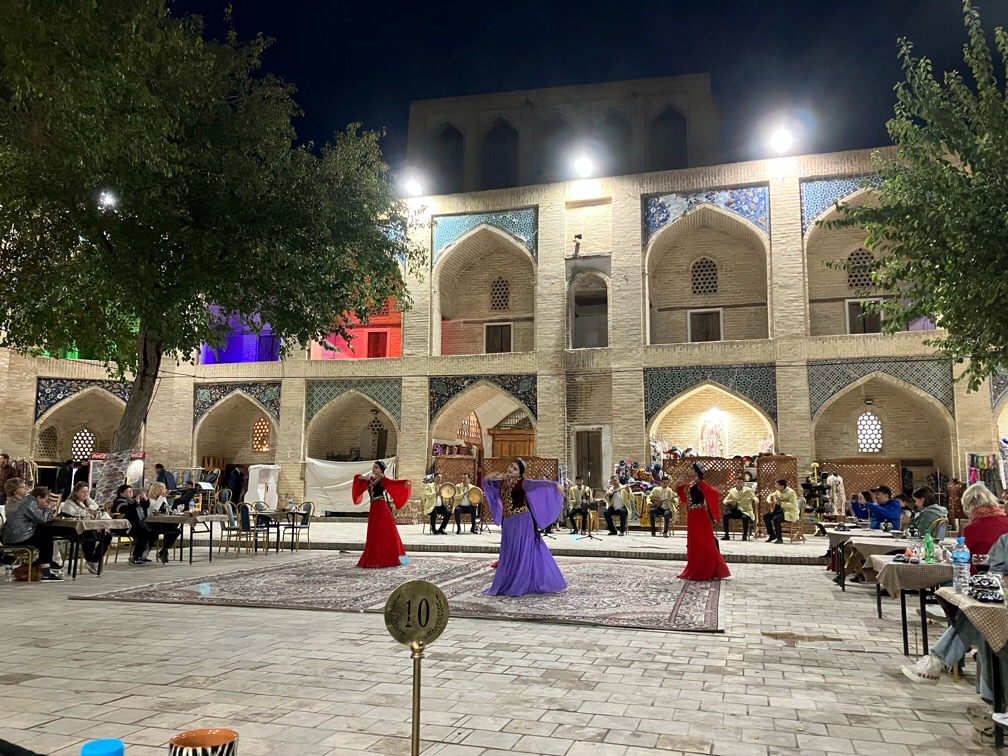
That would have been an interesting sight, hand picking cotton. I’ve often thought what a huge job that would be to just pick our own cotton, let alone the entire Aust crop.